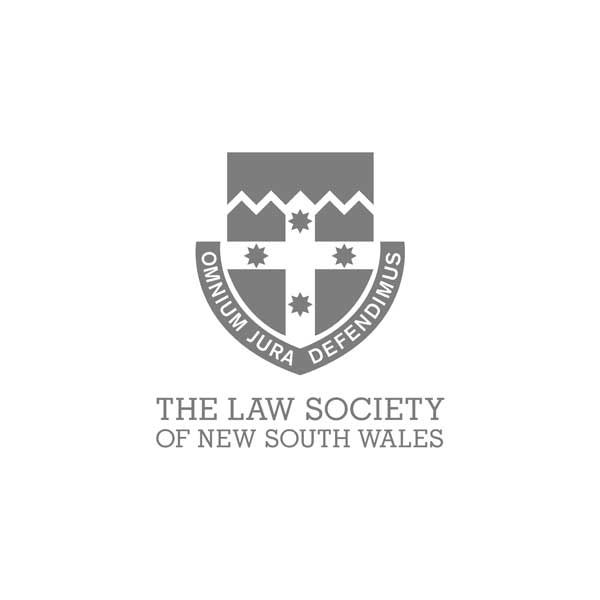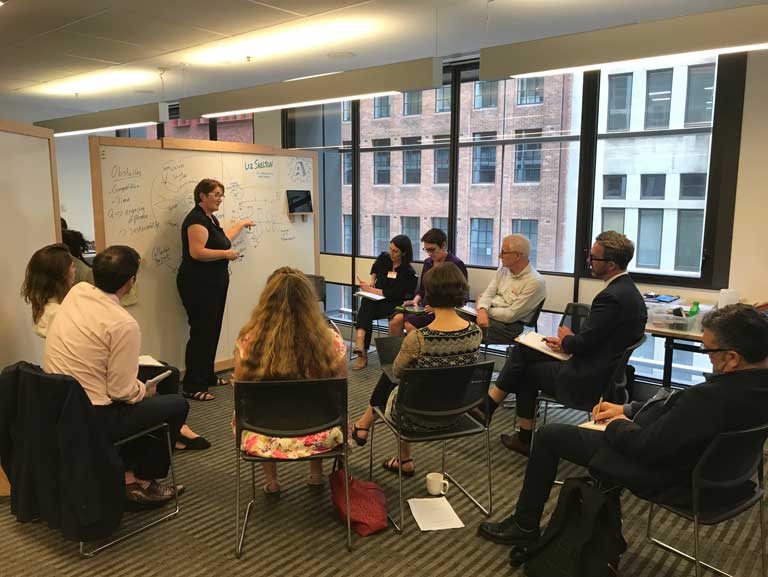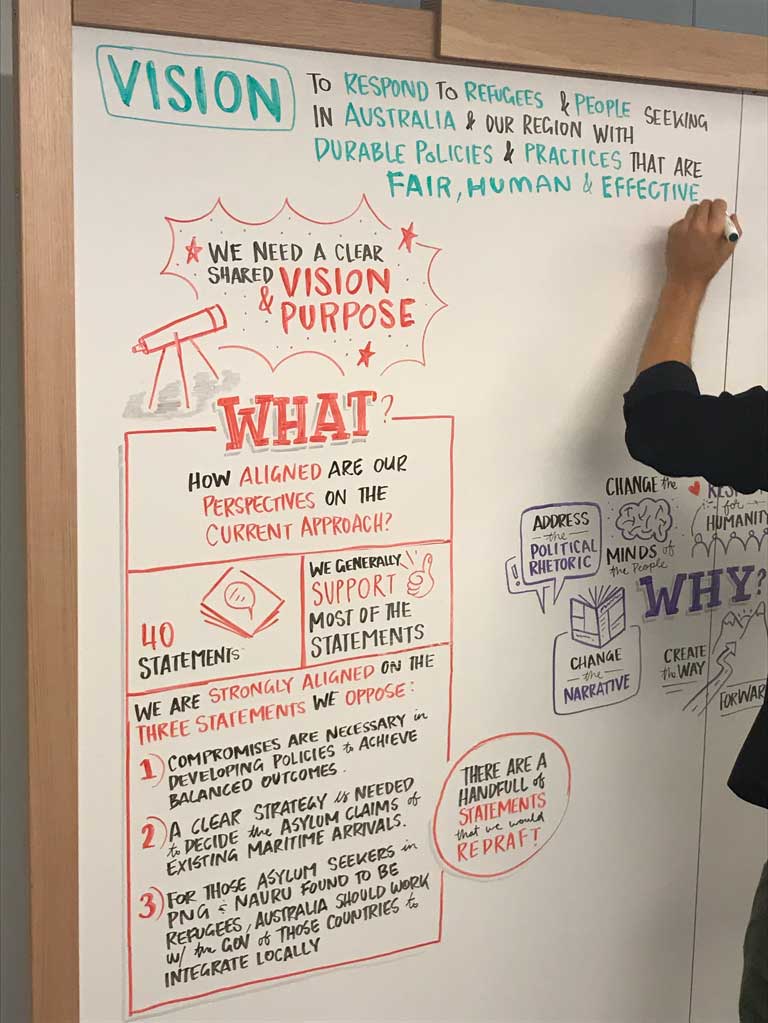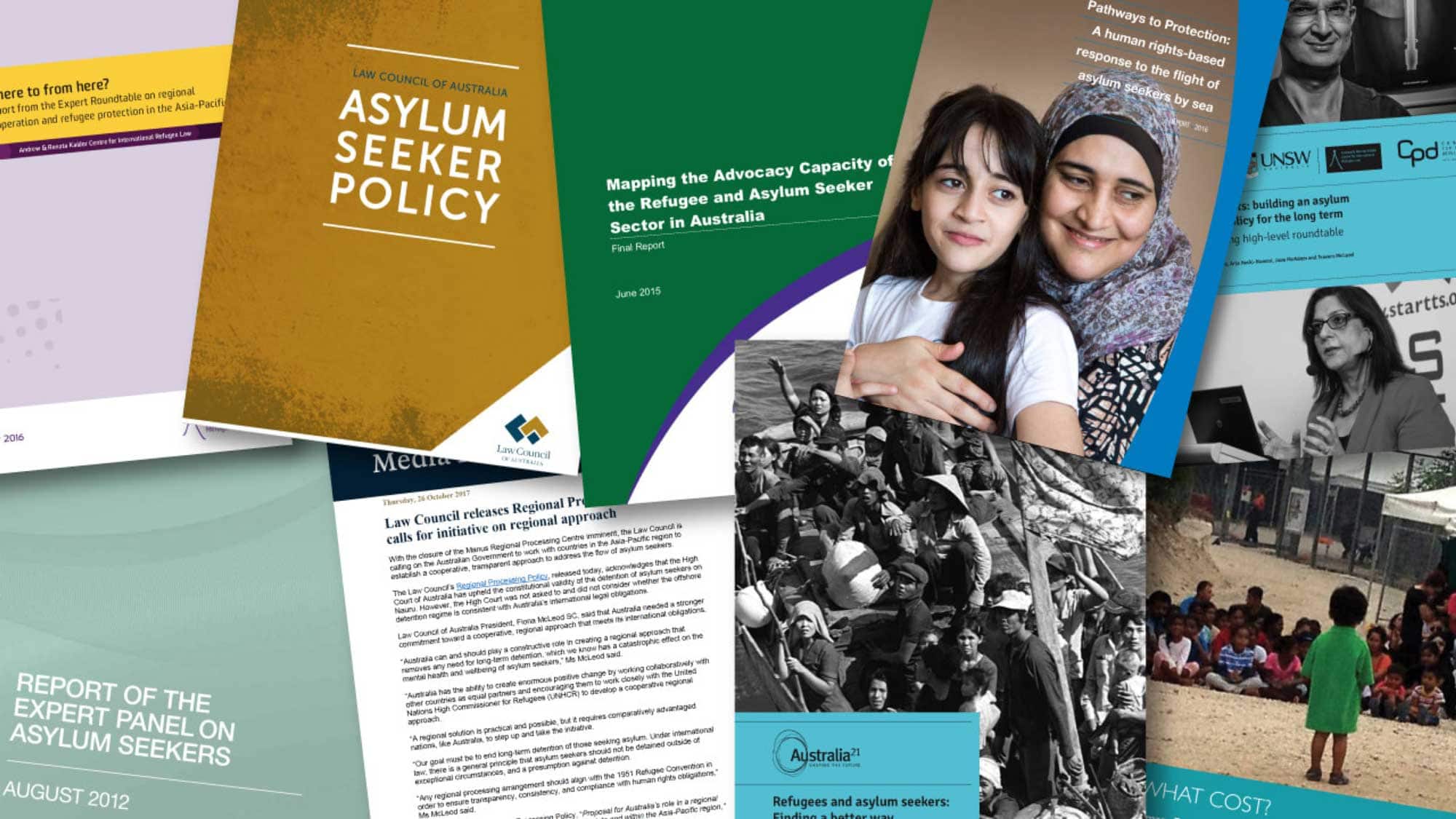Transforming the processing of asylum seekers in Australia

In September 2017 the NSW Law Society convened a Discovery Session to explore alternative options for offshore processing of asylum seekers. This session evidenced the vast amount of work already done and the need to distil key elements of that work into a preferred model which will be promoted to influence policy, shift community perceptions, and change the public narrative on this important issue. In order to realise this ambition, the decision was made to organise a larger Symposium to agree on a preferred model and chart a course of action. We were asked to drive the co-design process and the delivery of the symposium.
Given the constraints of a one-day Symposium, we decide to take the purpose for granted and convene participants around an unambiguous statement: the current model is breaching human rights; we need to develop an alternative model and have it translated into policies.
Our change strategy relied on the assumption that once we would have formed a high level view of a new model and of how to take it forward, the group would use their draft model to build interest, engagement and ultimately a coalition to join them on this journey. During the following stages, they would engage people with an expertise in building movements, and leverage Australia’s seat on the UNHCR.

Our greatest challenge was to net let the outcome fall off the radar after the symposium and to maintain momentum through to implementation. Achieving shared ownership was essential to success. Therefore our priorities will involve refining and simplifying the model to make it easier to support, and developing a willingness to work as a collective and provide the resources to hold it together long enough to gain traction.
For the model itself, we aimed to avoid duplication. We curated all the significant contributions to the debate and designed a mechanisms for participants to quickly extract the main points of consensus from across the board.
As far as ‘implementation’ was concerned, we were very humble about our ability to foster a sufficient level of ownership and commitment in only a day. We decided to be explicit on the fact that the symposium was held and designed on the premise that there would more work to come and this is just a beginning. We mostly wanted participants to experience what it would be like to work as a team of systems change agents and as a result, build confidence that change is achievable and that they were the right people to achieve it. This experience in itself would be one of the most valuable outcomes of the day.
The day revealed the full complexity of the issue, the urgency to act, and the magnitude of the challenges to have tangible impact. With it came moments of hope, fear and frustration.
In the course of the day, the participants crystalised a vision statement and a set of objectives for their emerging co-alition. They also agreed a few actions to take their work further, in particular to start growing a community of change agents into a movement. Overall, we closed the day with a sense of alignment and potential.

